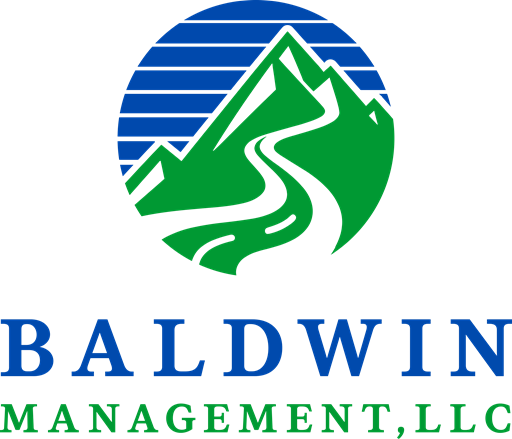Alternative investments—once considered niche—are becoming core tools in portfolio construction. Institutions now allocate over 25% of their assets to alternatives, compared to only about 5% from individual investors, according to Preqin’s 2024 Outlook(1). The growth is driven by a desire for diversification, yield, and inflation protection, as well as evolving platforms that have made once-exclusive assets more accessible.
But “alternatives” isn’t a single asset—it’s a spectrum:
- Infrastructure & Utilities: Traditionally seen as public equities, regulated utilities and infrastructure-focused funds (e.g., toll roads, airports, energy pipelines) are increasingly viewed as “real assets.” These offer stable income, inflation linkage, and lower correlation to traditional stocks. Exposure may come via listed infrastructure & utility ETFs/Mutual funds, individual stocks, or private infrastructure funds.
- Energy & Precious Metals: Commodities like oil, natural gas, and gold are part of the real asset family. They can act as inflation hedges, with precious metals also offering crisis correlation benefits. Exposure can be direct or indirect.
- Direct exposure to commodities typically refers to investing in the actual commodity or a financial instrument that tracks it closely, such as:
- Commodity ETFs (e.g., GLD for gold, USO for oil)
- Mutual funds specifically focused on physical commodities
- Futures contracts on oil, gas, gold, etc.
- Indirect exposure refers to investing in companies whose business performance is tied to the commodity, such as:
- Mining stocks (e.g., Barrick Gold)
- Energy equities (e.g., ExxonMobil)
- Direct exposure to commodities typically refers to investing in the actual commodity or a financial instrument that tracks it closely, such as:
- Options Strategy Funds & Overlays: These strategies fall under the umbrella of alternative income or hedged equity. They may be implemented through dedicated funds that use techniques like covered calls, put spreads, or volatility targeting to generate income or manage downside risk. Alternatively, pun intended, individual investors or advisors may directly employ option overlays by writing or buying options on specific equities within a portfolio. While these tools are technically liquid, they behave differently than traditional stock holdings and appeal to investors seeking tailored risk/reward trade-offs beyond conventional approaches(2).
- Private Equity & Private Credit: The classic “alts,” these investments offer exposure to companies and loans not available on public markets. Traditionally limited to institutions and wealthy investors due to high minimums and long lockups, access is becoming easier. Platforms like CAIS and iCapital are helping democratize entry by lowering minimums and simplifying investment processes (3)(4). New vehicles such as interval funds and non-traded REITs also improve liquidity and transparency, though careful manager selection and long-term commitment remain essential.
As alternative investments continue to evolve, it’s important to assess your personal investment goals and constraints. Consider whether you’re comfortable with the liquidity profiles involved—ranging from more flexible strategies like options overlays to longer-term commitments typical of private equity. Reflect on the role alternatives will play in your portfolio: Are you aiming for growth, steady income, diversification, or protection against inflation? Finally, ensure you have the tools and knowledge to evaluate the unique risks and transparency levels inherent in these diverse asset classes. Making informed choices, with the guidance of your investment manager, will help you navigate the broad spectrum of alternatives effectively, rather than simply following market trends.
While some assets may rise like tech unicorns, others may quietly underperform or carry hidden risk. The investor’s challenge is to discern which are high-performance machines and which are showroom polishers. In today’s market, being informed matters more than following the crowd and at Baldwin, we aim to support that journey with perspective, tools, and thoughtful guidance.
Sources:
(1) Preqin. Global Alternatives Report: 2024 Outlook. Preqin, 2024.
(2) Blackstone. Private Wealth Solutions: Liquid Alternatives Overview. Blackstone, 2024.
(3) CAIS. Alternative Investment Access and Education for Financial Advisors. CAIS, www.caisgroup.com.
(4) iCapital. Modernizing Access to Alternative Investments. iCapital, www.icapitalnetwork.com.
The opinions expressed in this Commentary are those of Baldwin Investment Management, LLC. These views are subject to change at any time based on market and other conditions, and no forecasts can be guaranteed. The reported numbers enclosed are derived from sources believed to be reliable. However, we cannot guarantee their accuracy. Past performance does not guarantee future results. We recommend that you compare our statement with the statement that you receive from your custodian. A list of our Proxy voting procedures is available upon request. A current copy of our ADV Part 2A & Privacy Policy is available upon request or at https://www.baldwinmgt.com/disclosure/.

Joe hails from Wilmington, Delaware, where he spent most of his life. He earned his undergraduate degree in finance from Temple University before furthering his education with a graduate degree in investment management, also from Temple University. Holding the CFA charter, which he achieved in 2022, Joe aligns with the caliber of professionals at Baldwin.
Before joining Baldwin, Joe served as the Director of Investments for a financial advisory firm at Northwestern Mutual in Albuquerque, New Mexico. His passion for all facets of the market drives him to dedicate substantial time researching, analyzing, and forecasting investment opportunities. Moreover, Joe finds fulfillment in working with clients, guiding them towards financial freedom through meticulous long-term investment strategies.
Outside of his professional pursuits, Joe indulges in golfing, outdoor activities, and competes in strongman weightlifting competitions. His favorite financial quote is, “The market can remain irrational longer than you can remain solvent.”
